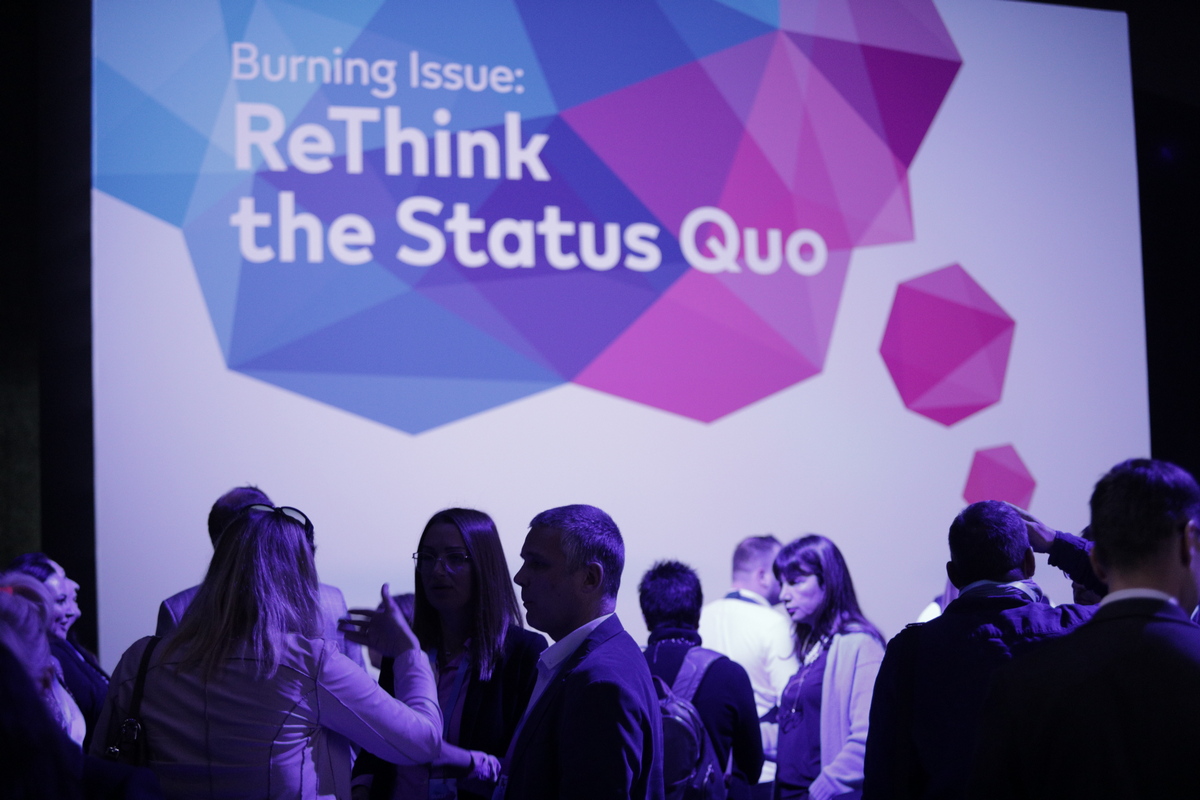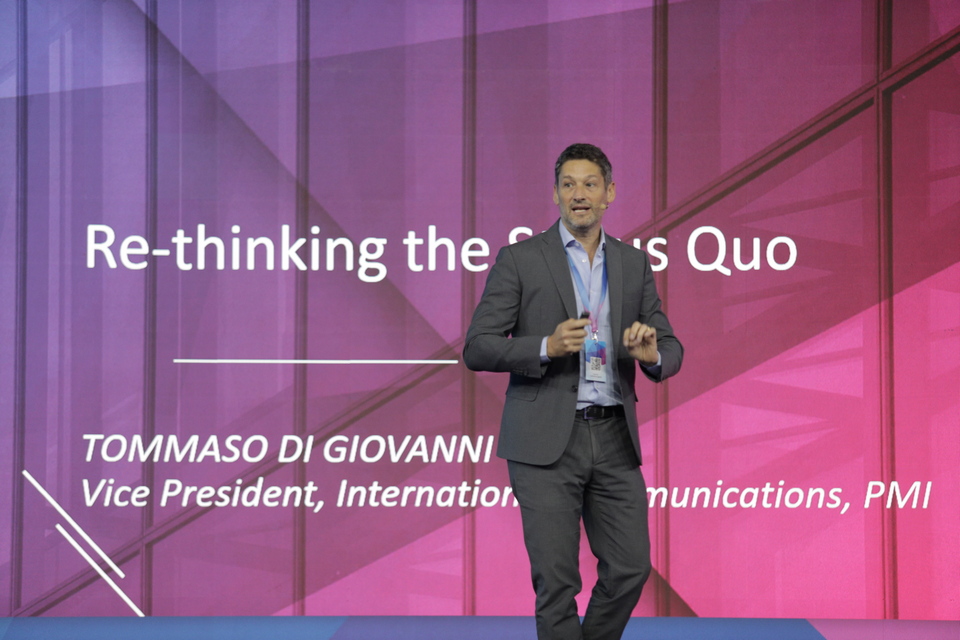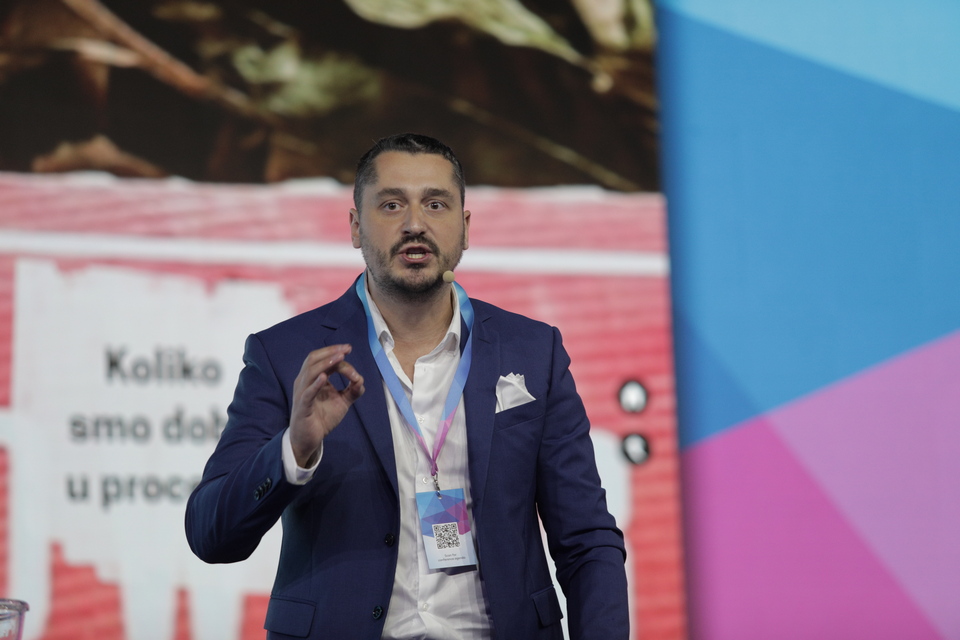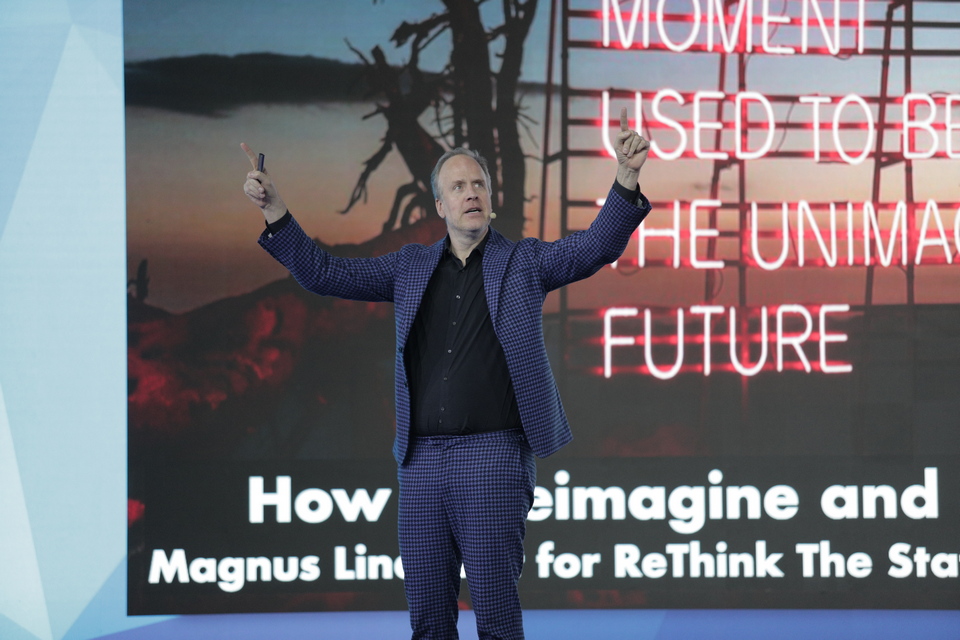“Watch what others do and do the opposite. If everyone copies everyone else, we’ll get nowhere. Experiment, play with rules, do not follow them blindly and do not rest on laurels of current success. Discuss ideas with creative people, don’t be surrounded by like-minded people and be always ready to rise from the ashes like a phoenix after a loss,” is one of the key messages of the ReThink the Status Quo conference, sent by Magnus Linkvidst, a globally renowned futurologist and speaker.

Together with Tommaso Di Giovanni, Vice President International Communications, Philip Morris International, Milan Popović, a science communicator, and Prof. Dr Jasna Bajraktarević, a psychologist, he reviewed Status Quo at the conference on harm reduction, organised by Phillp Morris at the Belexpo Centre.
Representatives of the business and expert public from the country and the region, as well as a large number of media representatives from the former Yugoslavia, gathered to hear messages of the four speakers and renowned global experts on risk mitigation and establishment of conditions for making decisions that change the world for the better.
“Innovation is always followed by scepticism. While working for Volvo, Nils Bohlin invented the safety belt which started to be used a decade later, due to a lack of trust in this invention. The fridge, which we take for granted today, was also welcomed with scepticism, although it turned out that it largely resolved the issue of stomach cancer caused by spoiled food. And today, many people do not believe in smoke-free alternatives to cigarettes, because they wrongly think that nicotine is the primary cause of smoking-related diseases. It is not true, as burning is the problem. When you light a cigarette, numerous harmful substances that are the main culprit for “smoking diseases” are released. Thanks to scientific and technological progress, it has become possible to get nicotine without burning by heating tobacco and thus eliminate up to 90-95% of harmful and potentially harmful substances from tobacco smoke. That’s the principle of harm reduction”, said Tommaso Di Giovanni, Vice President International Communications in Philip Morris International.

“Are you ready to take a risk?“ – asked Milan Popović, a scientific communicator, his surprised audience after dipping his hand with a light bulb on in a vessel filled with water as soon as he came to the stage. “Have I taken a risk just now? No, because this is distilled water. I’ve had facts at disposal and I’ve known that such, fully purified water is an insulator, rather than a conductor. Every time I assess a risk, I have facts at disposal. Therefore, I know what’s harmful and what’s not, no matter how similar it looks to someone who is not familiar with the topic.” As a harm reduction advocate, he conducted an analysis for Philip Morris, where he compared cigarette smoke and the aerosol produced by its tobacco heating device and, after that scientific analysis, he claims that he realised two things. „”Firstly, as a non-smoker, I am now even more certain that I will never light a cigarette. Secondly, I’m a bit more relaxed, because my significant other uses this tobacco heating product, for which I am certain now that it is a less harmful alternative to smoking,” explained the scientist.

Prof. Dr Jasna Bajraktarević talked about a modern lifestyle and its impact on our daily actions.
“Change does not occur overnight; decisions such as – I’m studying as of tomorrow, I’m on a diet as of tomorrow, etc. – are not realistic decisions. We will make a change for the better slowly and gradually when we realise what inner mechanisms impede our progress,” the psychologist and a regular participant in TED conferences pointed out.
“There are not optimism and pessimism only, there is also a middle road. I call it “possibilism”, and it actually stands for new opportunities, understanding the world in a new way, with new evaluations and new outlooks. I like following “possibilistic” initiatives, including one from Serbia called BIO4. Based on that and my brief stay in Serbia, my conclusion is that this is the country of “possibilism,” underlined Magnus Linkvidst at the end.
Philip Morris is the first company in the tobacco industry that set a new goal and mission more than ten years ago – Smoke-free Future. To that aim, more than 900 scientists and experts have been engaged and more than USD 9 billion has been invested in scientific research, development and commercialisation of smoke-free alternatives based on the tobacco heating technology, which are proven to be a better option than continued cigarette smoking.
Guided by the harm reduction principle, Philip Morris is the company which shifted from traditional cigarette business to operations with potentially less harmful alternatives, in order to generate positive change and to provide its contribution to the establishment of a better future through its responsible conduct.
